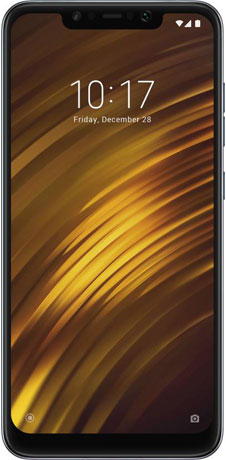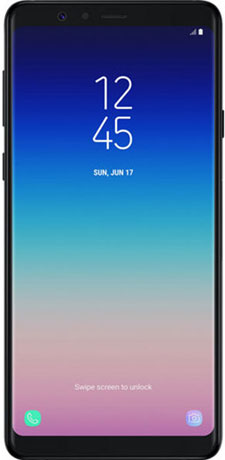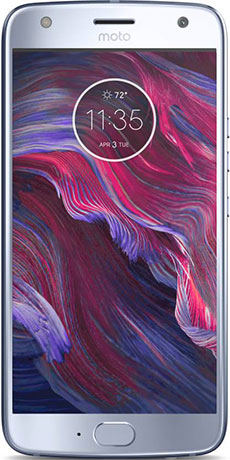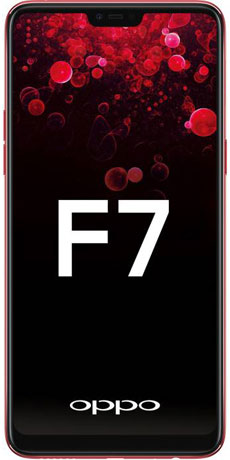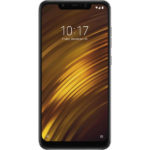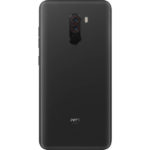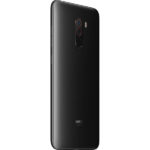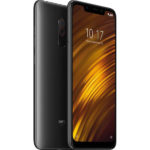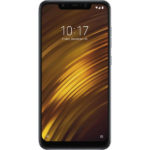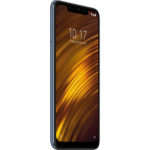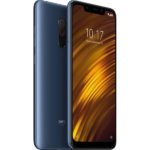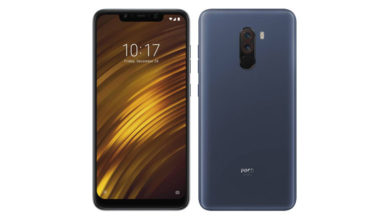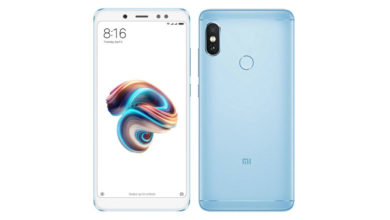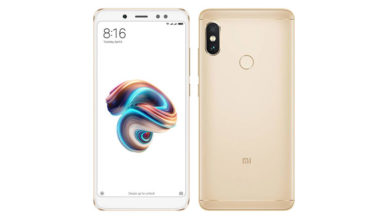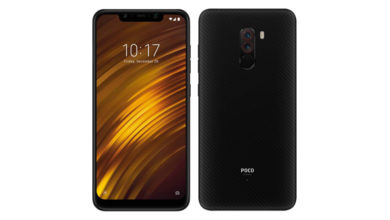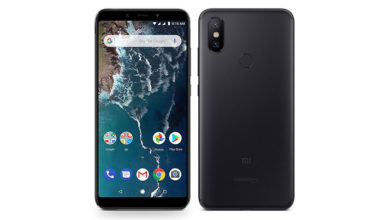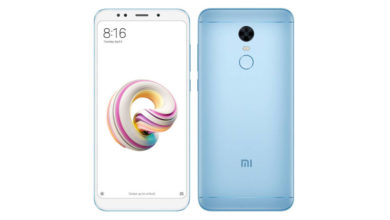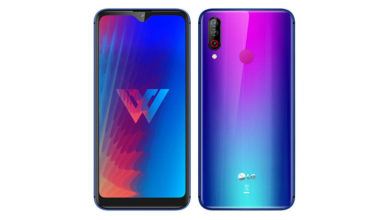Poco F1 (128 GB)
Full Specifications, Price, Review & Should you Buy?
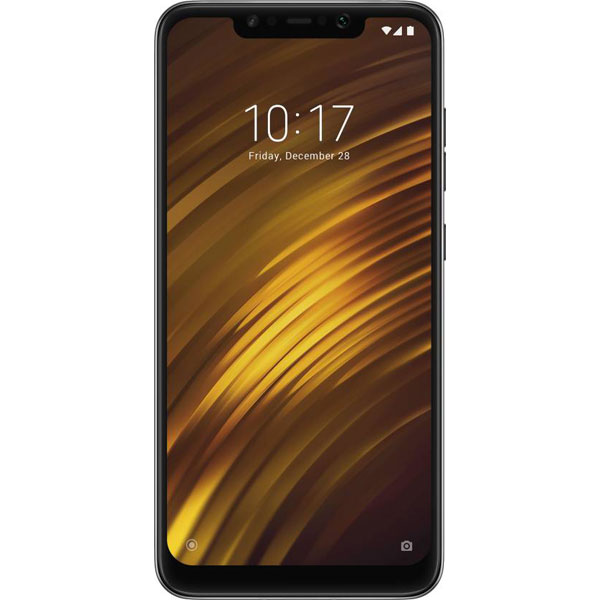
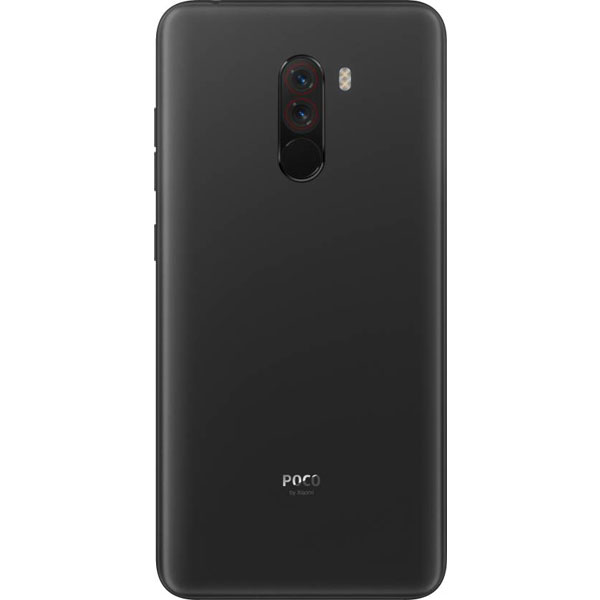
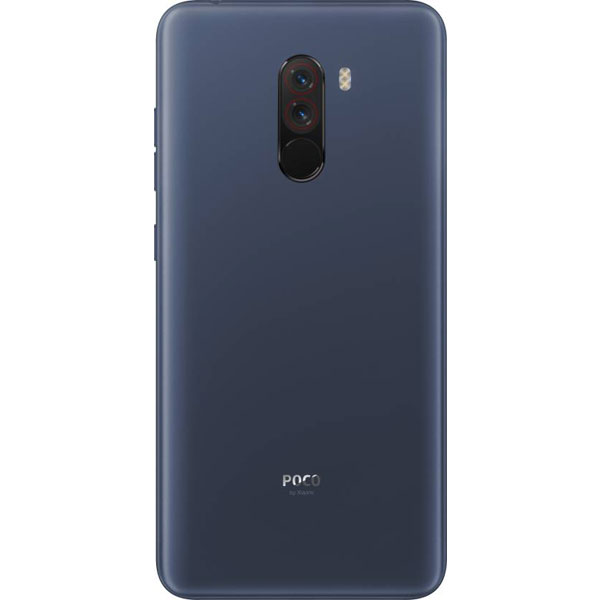
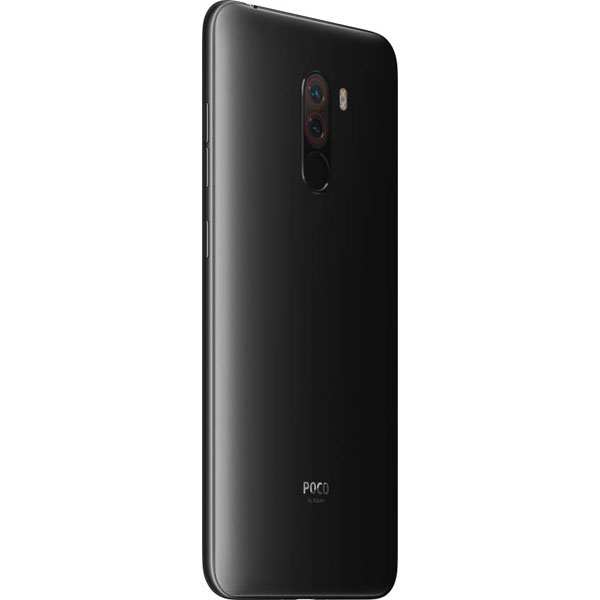
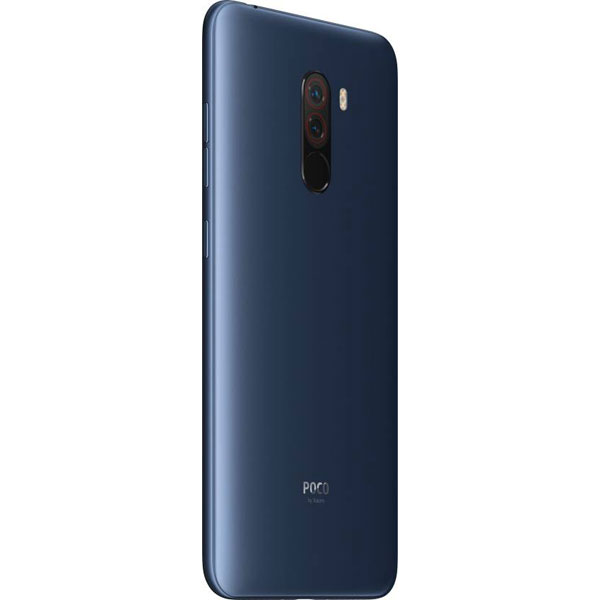
- 6.18 inches, Full HD+ Bezel-less display, 18:7:9 aspect ratio
- 2.8 GHz Octa-Core Qualcomm Snapdragon 845 processor
- 6 GB RAM, 128 GB Internal Storage, microSD up to 256 GB
- 12 MP + 5 MP Dual cameras, PDAF, EIS, 20 MP Front camera
- Android 8.1 Oreo, 4000 mAh battery, Quick Charge 3.0
- Fingerprint Scanner, IR Face Unlock, 4G VoLTE, USB Type-C
 |
Bezel-less display with Notch |
 |
Face recognition unlock |
 |
In-display fingerprint scanner |
₹
23,999
Strength
- Amazing performance with SD 845 & big RAM
- Excellent quality rear & front cameras
- Beautiful bezel-less design & good build
- Very good display quality
- IR Face Unlock works in complete darkness
- Huge battery with fast charging
- MIUI is feature rich, optimised & beautiful
- Great storage with an option to expand
- Stereo speakers with very good & loud sound
- Unbelievably cheap without compromises
- Great user experience
Weakness
No weaknesses, a perfect phone for its price!
Should You Buy?
Overall, the Poco F1 is a redefining smartphone for the mid-range segment in India and it just blows away the competition by a mile. It offers the best processor out there with excellent cameras, good design, very good display, huge battery, IR face unlock, excellent software, big & expandable storage, good sound and lots of features at an unbelievable price point. It truly takes care of all the user needs and is a great complete package. It’s very unsafe to call a smartphone perfect but, it is almost impossible to point out a flaw in the Poco F1 considering its jaw-dropping pricing. With truly unbeatable value, a killer of the Flagship Killer OnePlus, the Poco F1 is a Flagship phone for the masses!
0%
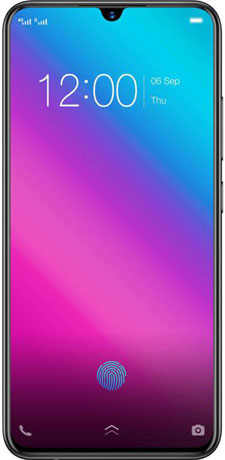 |
₹ 16,500 |
87 |
|
What's better compared to Poco F1 (128 GB)?
Selfies, Design, Bigger screen, Display, Slimmer, More features |
||
|
What's weaker compared to Poco F1 (128 GB)?
Performance, Rear camera, Storage, Smaller battery |
||
 |
₹ 14,999 |
86 |
|
What's better compared to Poco F1 (128 GB)?
Design, Bigger screen, Slimmer |
||
|
What's weaker compared to Poco F1 (128 GB)?
Performance, Rear camera, Display, Smaller battery, Less features |
||
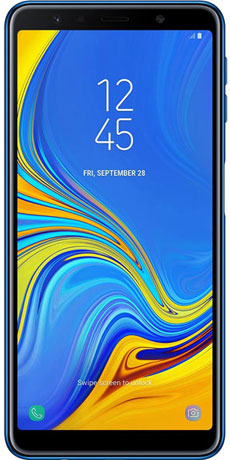 |
₹ 22,990 |
84 |
|
What's better compared to Poco F1 (128 GB)?
Rear camera, Selfies, Design, Display, Slimmer |
||
|
What's weaker compared to Poco F1 (128 GB)?
Performance, Less RAM, Smaller screen, Storage, Smaller battery, Less features |
||
| Phone Name(s) | Poco F1, Xiaomi Pocophone F1 (other markets) |
| Manufacturer | Xiaomi |
| Announced | August 2018 |
| Released | August 2018 |
| Build | Polycarbonate body |
| Colors |
Graphite Black
Steel Blue
Rosso Red
|
| Dimensions | 155.5 x 75.2 x 8.8 mm |
| Weight | 182 grams |
| Buttons | On-screen navigation buttons, Power button, Volume rocker |
| Screen Size | 6.18 inches |
| Display Type | Bezel-less IPS LCD display |
| Resolution | FHD+ (2246 x 1080 pixels) |
| Pixel Density | 403 pixels per inch (PPI) |
| Aspect Ratio | 18:7:9 aspect ratio |
| Display Area | 82.2% screen-to-body ratio |
| Protection | 2.5D curved Corning Gorilla Glass 3 |
| Contrast Ratio | 1500:1 |
| Brightness | 500 nits |
| Touchscreen | Yes, Capacitive, Multitouch |
| Processor | 2.8 GHz Octa-Core Qualcomm Snapdragon 845 with LiquidCool Technology |
| RAM | 6 GB |
| GPU | Adreno 630 |
| Internal | 128 GB |
| External | microSD up to 256 GB |
| USB OTG | Yes |
| OS | Android 8.1 Oreo |
| User Interface | MIUI 9.6 for Poco |
| Features | Poco launcher, Turbocharge engine, support for icon packs, Dual apps, Second space |
| Rear Camera | 12 MP + 5 MP Dual cameras with Dual LED flash |
| Details | Primary sensor: f/1.9 aperture, 1/2.55″ Sony IMX363 sensor, 1.4μm pixel size, Dual Pixel PDAF, EIS Secondary sensor: f/2.0 aperture, 1.12μm pixel size Portrait Mode, Face Recognition, AI Beautify, AI Scene Detection, Slow motion video, HDR, Panorama |
| Video Recording | 2160p @30fps, 1080p @30fps, 720p @30fps; Slow-mo @240fps (1080p), @240fps (720p); EIS upto 1080p |
| Front Camera | 20 MP |
| Details | f/2.0 aperture, AI Portrait mode, AI Beautify 4.0, Face recognition, 4-in-1 pixel binning |
| Video Recording | 1080p @30fps |
| SIM | Hybrid Dual SIM (Dual VoLTE) |
| SIM Size | Nano SIM |
| Capacity | 4000 mAh Li-Po battery |
| Fast Charging | Yes, Quick Charge 3.0, 9V/2A charger |
| Wireless Charging | No |
| Removable Battery | No |
| Security | Fingerprint Scanner, IR Face Unlock |
| Sensors | Accelerometer, Proximity sensor, Ambient light sensor, Electronic compass, Gyroscope, Vibration motor, Hall sensor |
| Wi-Fi | 2x2 MIMO, 802.11 a/b/g/n/ac, 2.4 GHz + 5 GHz Dual Band, Wi-Fi Direct, Wi-Fi Hotspot, DLNA |
| Bluetooth | v5.0, A2DP, LE, aptX HD |
| Location | GPS, A-GPS, GLONASS, BeiDou |
| USB Type | USB Type-C |
| FM Radio | Yes |
| NFC | No |
| Infrared | No |
| Speakers | Stereo speakers (one bottom mounted & ear-piece), Dirac HD Sound |
| 3.5mm Headphone Jack | Yes |
| Microphone | One primary microphone and one dedicated microphone for Active noise cancellation |
| Cellular Networks | 2G, 3G, 4G, 4G+, VoLTE |
| 2G Bands | GSM 850/ 900/ 1800/ 1900 MHz |
| 3G Bands | HSDPA 850/ 900/ 1900/ 2100 |
| 4G Bands | FDD LTE 1(2100)/ 3(1800)/ 5(850)/ 7(2600)/ 8(900)/ 20(800) TDD LTE 38(2600)/ 40(2300)/ 41(2500) |
| Speed | HSPA 42.2/5.76 Mbps, LTE-A Cat16 1024/150 Mbps |
| Head | - |
| Body | - |
| Notification LED | Yes |
| Water Resistance | Splash Resistant (P2i) |
| What's in the box? | Poco F1, Power adapter, USB cable, SIM eject tool, Warranty card, User guide, Clear soft case |
Xiaomi has launched a new sub-brand in India, known as ‘Poco’ and before getting to its first smartphone Poco F1, let’s talk about the Poco sub-brand itself.
Why ‘Poco’ sub-brand?
It’s a known fact that Xiaomi has not introduced its top of the line flagship smartphones like the Mi 6 in India and the company has been reluctant to bring its premium mid-range phones in the country, where the premium mid-range smartphone segment is getting bigger and more users are willing to spend a good amount of money for the flagship smartphones like the OnePlus 6, which has dominated the premium segment.
Xiaomi, despite having the arsenal, user affection and premium smartphones already in its kitty, has been significantly missing in the premium mid-range segment in India.
Xiaomi, despite having the arsenal, user affection and premium smartphones already in its kitty, has been significantly missing in the premium mid-range segment in India and so they have decided to launch a sub-brand which will help them start afresh from scratch, without carrying the baggage of Xiaomi’s brand commitments. So, here is the Poco sub-brand which leverages all of Xiaomi’s hardware, software, supply chain and after sales service expertise but with a slightly different approach from its parent.
Now, let’s come to the Poco F1, a phone which is eyeing to entirely shake up the entry-level premium smartphone segment in India.
Poco F1 Design & Display:
Starting with its design, the Poco F1 has gone for a realistic and more practical approach by not having a more premium glass back and has instead settled for a polycarbonate (plastic) back saying that most users use a case/cover on their phones and so, it will be a better choice to use the more durable plastic which will help them keep the cost low and focus more towards the things which matter more like, performance and cameras.
We completely agree with Poco here as most users, including us, will care more about how the phone performs rather than how beautiful its glass back is, especially when it’s under cover. But, to take this step the manufacturers need to justify it by compensating with a lot of value for the price, which the Poco F1 does beautifully; more on it in the later part of the review.
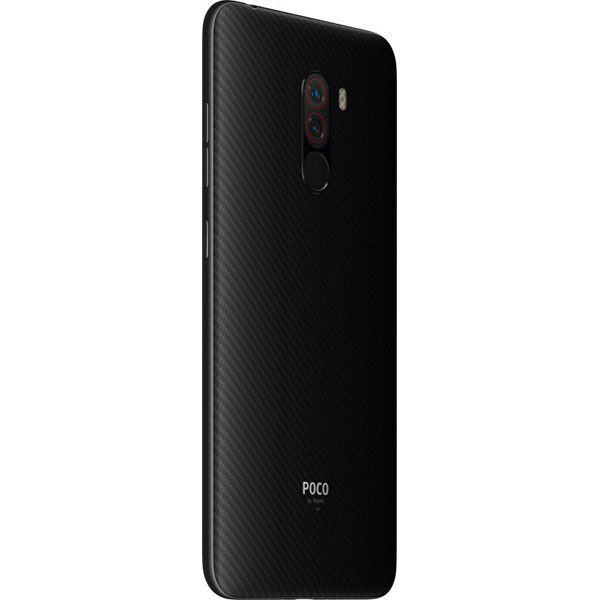
Great thing is, despite using plastic, Xiaomi has not compromised with the build quality of the phone and it feels pretty solid in hands, it comes with a soft matte texture on the back which feels good and can be used without a case.
Well, if you are still not happy with the plastic back, there is a special Armoured Edition of the Poco F1, which comes with an actual Kevlar stitched back. It looks cool and at the same time feels very good in the hands. So, Xiaomi has kept the option open if you want a more stylish phone, but the Kevlar back is available only in the top end Armoured Edition of the phone.
Poco has also announced that it will also launch official skins for the phone, which will let you customise it to your liking.
The Poco F1 also looks good from the front and sports a 6.18 inches IPS LCD screen with FHD+ display having 18.7:9 aspect ratio & 500-nits brightness. Although it’s not an OLED display like most of the premium flagship phones, the display quality is still very good for its price. There is a big notch up top, which is fairly big compared to most phones out there but it includes some special sensors, which are worth it; we’ll come to the sensors later. The screen comes protected with 2.5D curved Corning Gorilla Glass 3.
Performance:
The greatest thing about the Poco F1 is that it is powered by Qualcomm’s latest flagship processor- the Snapdragon 845, which is an Octa-Core processor clocked at 2.8 GHz, which also happens to be the best smartphone processor out there at least for Android phones. It comes paired with Adreno 630 GPU and comes in two RAM options of either 6 GB or 8 GB. The phone is very powerful and the performance is flawless, it can handle everything including the heaviest of the games.
An important feature, which is not there in most of the high-end phones including the OnePlus 6 is the LiquidCool Technology, which uses liquid to dissipate the heat and keep the processor’s heat under control, which in turn makes sure that the processor delivers stable performance for long duration gaming and other intensive usages, without a drop in performance. It is well implemented on the Poco F1.
Cameras:
The Poco F1 comes with a dual camera setup on the back with a 12 MP primary Sony IMX363 sensor with 1.4μm large pixel, f/1.9 aperture & dual-pixel autofocus, the same sensor has also been used in Xiaomi’s this year’s flagship Mi 8 as well. There is a 5 MP secondary sensor with 1.12μm pixel and f/2.0 aperture. The Poco F1 comes with Xiaomi’s camera app which has lots of modes and filters including a full manual mode. Portrait shots on the Poco F1 turn out good with natural blurring of the background and good edge detection. It comes with EIS for video recording and it actually works very well but, it is limited to 1080p videos.
The picture quality on the Poco F1 is excellent. It clicks sharp photos with good colours and great details, it also does a great job under high dynamic ranges. It manages to click good low light images with a good amount of light but the details get a little hit, which is expected. The company touts a lot about the ‘AI Camera’ on the phone. The AI mode, when turned on can automatically detect the scene and adjusts the camera parameters accordingly, it works well and doesn’t oversaturate the pictures like we see on some of the Honor phones. Summing up, it’s an excellent camera setup for its price.
On the front, there is a 20 MP selfie shooter with f/2.0 aperture, again it’s the same one used on the Mi 8. It clicks excellent selfies with great details in daylight conditions. It comes with 4-in-1 pixel binning technique to let in more light during low light conditions and produce a better image, the low light performance is good as well.
You do not get OIS for any of the cameras but it is really unfair to expect OIS at this price.
OS & UI:
The Poco F1 runs on the Android 8.1 Oreo based ‘MIUI 9.6 for Poco’, which is indeed Xiaomi’s popular MIUI but with a few customizations, most noticeably the biggest difference is in the launcher. Poco has made some changes to Xiaomi’s default launcher and calls it the Poco Launcher, which comes with an app drawer which can automatically customise the apps based on their category. The Poco launcher also categorises apps based on their icon colours.
Poco has also introduced Turbocharge engine for fast app startup and have reduced animation time so the gestures and everything feels snappy. The Poco launcher also comes with Icon Packs support so, you can always get the icon pack of your choice from the Play Store and install it right away. Rest everything is the same as MIUI and you get all its features like Dual Apps, Second Space and more. Poco has promised quarterly security updates for the Poco F1 and has also announced that Android Pie will be coming in Q4.
SIM & Storage:
The Poco F1 is a Dual SIM phone with support for 4G & Dual VoLTE, it also comes with 4G+ which ensures you get good call quality even with lower network strength, which is typically an issue inside homes. It comes in three storage variants of 64 GB (with 6 GB RAM), 128 GB (with 6 GB RAM) & 256 GB (with 8 GB RAM). The Poco F1 Armoured Edition only comes in 8 GB RAM & 256 GB storage option and is priced Rs. 1,000 more than the standard 8+256 GB variant.
The Poco F1 comes with UFS 2.1 file system which is a faster mechanism for file transfers. All the variants come with a hybrid slot and you can use microSD up to 256 GB, although it’s a hybrid slot it still gives you an option to use the microSD card, a feature which is largely missing among most flagship smartphones.
Security:
The Poco F1 comes with face recognition unlock, but with a better one. Remember we talked about that big notch earlier with some special sensors, the special sensors are an IR lens and IR light for IR Face Unlock, which works even in complete darkness and is pretty fast and accurate. Most of the phones just rely on the front camera for face unlock but Xiaomi’s dedicated Infrared setup is far superior. The Poco F1 also comes with a fingerprint scanner situated on the back, which is again very snappy and accurate.
Battery & Sound:
Another great thing about the Poco F1 is its huge non-removable 4000 mAh Li-Po battery, which delivers good battery backup. It also comes with fast charging support and thankfully, unlike the recently launched Xiaomi Mi A2, comes with Quick Charge 3.0 compatible 9V/2A charger in the box. It uses USB Type-C for data syncing and charging.
The Poco F1 comes with Dirac HD Sound and has very loud and good quality speakers. The earpiece also doubles up as a speaker and gives a stereo effect.
Poco F1 (Graphite Black):
Poco F1 (Steel Blue):
Poco F1 (Rosso Red):
- Heavy Users
- Normal Day to Day Users
- Heavy Gamers
- Moderate Gamers
- Camera Lovers
- Selfie Lovers
- Multimedia Consumption

